|
|
Cultures of Mathematics 2015
22-25 March 2015
New Delhi, India
Abstracts.
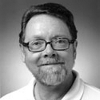
|
Cultures of Applied Mathematics
Tom
Archibald
Simon Fraser University, Vancouver BC, Canada
TALK CANCELLED
What does it mean to "apply" mathematics? How does this "applicability" reflect in the
attitudes of practitioners to questions having to do with aesthetic values, ontology,
and other foundational matters? We approach this question via several historical case
studies from the late 19th to mid-20th century, in an effort to develop a vocabulary for
the analytical description of application that reflects the actual range of uses by
various flavours of applied mathematicians.
|
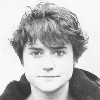
|
Socially pushing mathematics into the objective. A lecture on Husserl's Origin of Geometry
Karen François
Vrije Universiteit Brussel, Brussels, Belgium
Edmund Husserl analyzed in his The Origin of Geometry (1936) extensively the construction of
objectivity of ideal objects, e.g., geometry or mathematics in general (Husserl, 1970).
Based on this work we will argue that the later Husserl can be seen as a precursor of constructivism.
In François (2011), I extensively elaborated on the way how Husserl explains the possibility of
ideal objectivity, the objectivity of mathematics, and of objectivity of real objects, starting from the
really intra subjective process of consciousness. Husserl never struggled with a solipsism nor with the
radical constructivism key problem of inter-subjectivism (Martinez-Delgado, 2002). Based on his idealistic
transcendentalism and faithful to his basic principles of phenomenology Husserl, or let me call it, the
late Husserl analyses the construction of knowledge and more the construction of objective knowledge, e.g.,
mathematics.
There are many similarities between von Glasersfeld's—the founding father of radical
constructivism—concept of radical constructivism and Husserl's phenomenological ideas on the
construction of (objective) knowledge. In his famous book Radical constructivism: A way of knowing and
learning von Glasersfeld (1995) introduces his concept of radical constructivism in a simple and clear
way. "What is radical constructivism? It is an unconventional approach to the problem of knowledge and
knowing. It starts from the assumption that knowledge, no matter how it is defined, is in the heads of
persons, and that the thinking subject has no alternative but to construct what he or she knows on the
basis of his or her own experience. What we make of experience constitutes the only world we consciously
live in. It can be sorted into many kinds, such as things, self, others, and so on. But all kinds of
experience are essentially subjective, and though I may find reasons to believe that my experience may not
be unlike yours, I have no way of knowing that it is the same. The experience and interpretation of
language are no exception." (von Glasersfeld 1995: 1)
In this paper we will go into the main critiques on the concept of radical constructivism of von
Glasersfeld. Therefore we first will introduce the way Husserl was dealing with the construction of
mathematical knowledge and how he was dealing with the ontological question.
References.
- François K. (2011) On the notion of a phenomenological constitution of objectivity. In:
Tymieniecka A-T. (ed.) Analecta Husserliana, issue Transcendentalism overturned. Springer, Dordrecht: 121-137.
- Husserl E. (1970) The origin of geometry. Appendix VI of the crisis of European sciences and
transcendental phenomenology. An introduction to phenomenological philosophy. English translation by David
Carr. Northwestern University Press, Evanston, IL: 353-378.
- Martinez-Delgado A. (2002) Radical constructivism: Between realism and solipsism. Science Education
86(6): 840-855.
- von Glasersfeld E. (1995) Radical constructivism: A way of knowing and learning. Falmer Press, London.
Slides
|
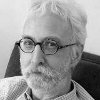
|
Scholarly and sub-scientific mathematical cultures: a reassessment
Albrecht Heeffer
Universiteit Gent, Gent, Belgium
In 1990, Jens Høyrup coined the term 'sub-scientific mathematics' as
distinct from "scientific mathematics" and identified historical practices in
Babylonian and Arabic mathematics as sub-scientific. He points out that such
practices are exemplified by recreational mathematics to which he assigns a specific
heuristic value in the learning and dissemination of mathematics. Thought his
distinction has not been well-received, we believe it can very well be adopted to
mathematical cultures in a broader context. In our reassessment of the distinction
we provide some formal characteristics of sub-scientific mathematical cultures,
examples how such cultures flourished in different societies and time periods and
how scholarly and sub-scientific mathematical cultures interact and influence each
other.
Slides
|
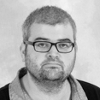
|
The Heterogeneity of Mathematical Practice
Matthew
Inglis
Loughborough University, Loughborough, England
TALK WILL BE SHOWN AS VIDEO
Academics interested in mathematical practice have traditionally relied upon
introspective accounts of leading mathematicians, philosophical or historical case
studies, and interviews with small numbers of practicing mathematicians. More
recently some have begun to use experimental techniques. But all these methods rely,
to a greater or lesser extent, on what I call the assumption of homogeneity: the idea
that there is a great deal of similarity between how different research
mathematicians behave in mathematical situations. In this talk I review recent
evidence which calls into question this assumption, and argue that there are large
(mostly unexplained) differences in how mathematicians evaluate both informal
arguments and formal proofs. I will then discuss the implications of this
heterogeneity for the validity of typical research methods used by the mathematical
practice research community.
|
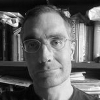
| What does it mean to study mathematical
practice?
Brendan
Larvor
University of Hertfordshire, Hatfield, England
The word 'practice' means different things to different scholars. I shall
survey some of these meanings and ask whether they have anything to offer the
study of mathematical cultures. I shall argue that Pickering's 'mangle of practice'
view mangles its own insight, and that human agency retains a privileged place in
the study of mathematical cultures and practices.
Slides
|
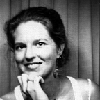
|
Algebra, Accreditation, & the American Academy
Madeline Muntersbjorn
University of Toledo, Toledo OH, U.S.A.
A recent report by the Carnegie Foundation for the Advancement of Teaching (CFAT)
begins, "Over 60 percent of all students entering community colleges in the
United States are required to complete developmental courses and a staggering 70
percent of these students never complete the required mathematics courses,
blocking their way to higher education credentials and with them, a wide array of
technical and related careers."
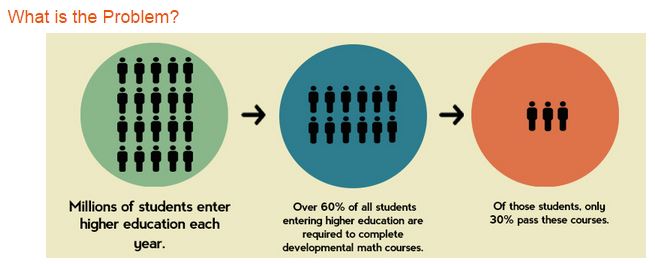
Developmental courses teach pre-college
content, such as geometric and basic algebra, and do not count towards degrees as
opposed to college algebra a core course representing the "minimum math"
required for a college diploma by accreditation standards. If failure to pass
college algebra prevents students from completing their degrees one might think
the solution is to require more students to take more advanced math in high
school. However, more US students are passing more ?advanced? high school
mathematics classes than ever before even as they continue to perform poorly on
achievement tests. In October 2014 National Public Radio ran a story on CFAT's
Pathways project, "Who Needs Algebra? New Approach To College Math Helps More
Pass." Reactions varied from, "People use algebra all the time whether they
realize it or not" to the less common, "I had to take algebra but have never used
it since." A faint refrain from CFAT's target demographic could also be heard, "I
tried to get a college degree but couldn't because algebra." From Hobbes's
infamous rejection of Wallis's notation, to the Freudenthal-Unguru debate as to
whether Euclid Book II is algebra in substance if not style, the borders around
algebra continue to defy easy demarcation: Do we need to know what x stands for
in order to solve for it? The power symbolic reasoning confers on those who
master it is rarely doubted by those who master it! But from the outside looking
in, the college algebra requirement appears arbitrary and elitist. This case
study suggests that even if mathematics is "universal" insofar as mathematical
expertise crosses cultural borders with relative ease, what counts as
mathematical competence continues to divide, rather than connect, social classes
within contemporary US culture.
Slides
|

|
An empirical investigation into explanation in mathematical conversations
Alison Pease
Imperial College, London, England
Analysis of online mathematics forums can help reveal how explanation is used by mathematicians. We searched four
discussions (Gowers and Tao's Mini-Polymath projects 2009-2012) for
premise indicators, conclusion indicators and explanation indicators. We thereby developed typologies of explanations. We found
explanations about flaws in reasoning; meta-level reasoning about proof strategies; reasons why the truth of a mathematical
statement cannot be known; and clarifications. We investigated the structure of these explanations and the understanding shown by
other participants before and after an explanation. Novelties of our approach include an emphasis on mathematics in progress
rather than as finished product, a data-led rather than philosophy-led approach, and a focus on the collaborative work
characteristic of much mathematical research.
|
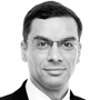
|
Living Mathematics—some limits for abstraction in mathematics and their
relation to experience
Emil Simeonov
Fachhochschule Technikum Wien, Vienna, Austria
In this talk I will focus on the role of time and memory on one hand and
self-reference and some aspects of signification in mathematics on the other
hand. Time plays a role at different levels: reading, writing and all other
mathematical activities are trivially embedded in time. But what about
'mathematics' itself? My claim is that time cannot be abstracted although
some foundationalists and logicians claim that they can base mathematics (or
let's say set theory) not on processes (which have to be embedded in time)
but on embeddings. I strongly doubt this and will explain why. I am not
forgetting about the notion of 'permanence' which seems to resolve the issue
but actually does not. The impression of mathematics being something static
is due to the phenomenon of memory and 'external memory' like this and other
texts is a strange phenomenon, obviously necessary for mathematics. Memory
makes it possible to have the illusion of simultaneity - something central
to the notion of equality. This leads to another strange role of time in
mathematics - many of the metaphors used in mathematics are time-related,
related to verbs, like the metaphors we use for limits ... 'n goes to
infinity'. This brings us nicely to some semiotic questions. Brian Rotman
gives an interesting semiotic model trying to explain what is happening in
mathematics - an ideal and abstract 'agent' performs al the operations which
are written down (as orders) by a person called 'mathematician'. The issue
is that the 'mathematician' does not only write orders (like a computer
program) but performs other activities, among others the creation of orders
(e.g., programs), the evaluation of orders (programs) created by others.
These additional activities are on one hand necessary and lead on the other
hand to self-references which themselves constitute strong arguments for the
social embedding of mathematics on one hand and for the impossibility to
automatize (and formalize) the living part of mathematics and thus
mathematics itself. Two examples of self-references would be 'a proof that
something is a proof' and 'a rigorous definition of rigor'. Other examples
will be presented in the talk.
|
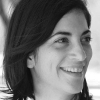
|
Training
the Mathematical Imagination: Visualization and Modeling after 1970
Alma Steingart
Harvard University, Cambridge MA, U.S.A.
TALK CANCELLED
In this talk I will examine the introduction of computer graphics to mathematical
practice and education starting in the 1970s. I ask how this new technology both
complemented and amended older mathematical practices such as hand-drawn
illustrations and three-dimensional physical modeling. Focusing on some of the
earliest appropriations of computer graphics in geometry and
topology—visualizations of higher dimension, the problem of minimal surfaces,
and the sphere eversion—I demonstrate how these graphic investigations opened
up the numinous mathematical world to direct observation, exploration, and
manipulation. I argue that beyond their use in pedagogical work or as aids to
theorem proving, these graphic explorations point to the ways in which
mathematicians materially explore and generate embodied understandings of otherwise
abstract principles.
|
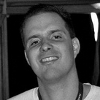
|
Proof as a cluster concept
Keith Weber
Rutgers University, Piscataway NJ, U.S.A.
Philosophers studying mathematical practice typically characterize proofs as the informal conceptual proofs that
mathematicians ordinarily produce. I propose that proofs can be characterized by George Lakoff?s notion of cluster concept. I
test theoretical entailments of this characterization with an empirical psychological study of mathematicians. I then use the
data from this study to investigate the different ways in which different sub-groups of mathematicians view proof.
Slides
|

 
|
|
|